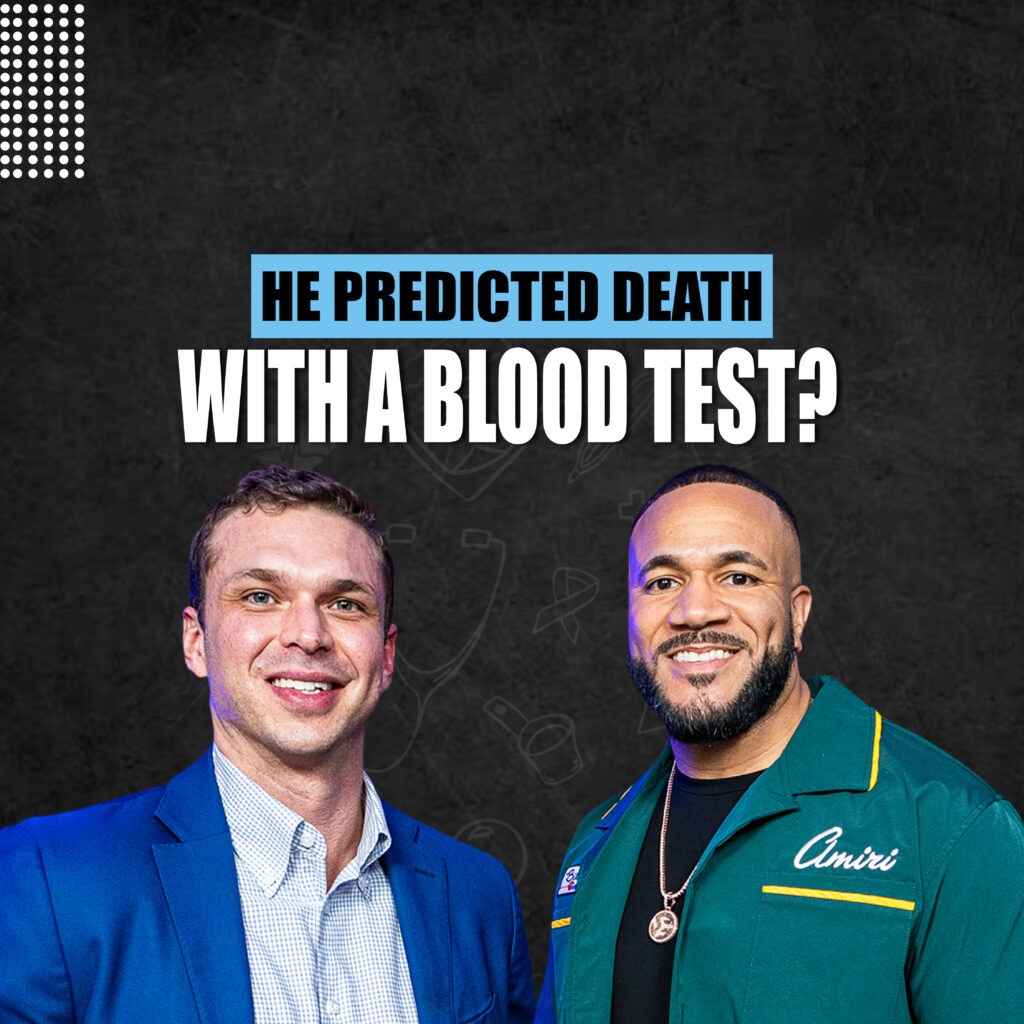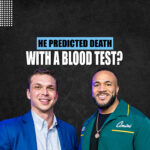What if your body is aging faster than you think—and no one’s told you?
That’s the question driving the conversation on “A Healthy Point of View” podcast between Ryan Smith, a pioneer in personalized diagnostics and biological age testing, and Sam Tejada, CEO and Founder of Liquivida®. Together, they’re pulling back the curtain on one of the most overlooked truths in modern medicine: your health can’t be optimized unless it’s measured—and most people aren’t measuring enough.
This isn’t about guessing how you feel or waiting for symptoms to appear. It’s about using cutting-edge diagnostics to identify what’s going on beneath the surface, long before traditional medicine even starts paying attention. From biological age testing and epigenetics to tracking risk scores for diseases like Alzheimer’s and heart disease, Smith and Sam explore how real data can flip the script on aging and illness—and empower you to take control.
He Predicted Death With a Blood Test? Ryan Smith Exposes The Future of Aging! Ep. 56

Why We’re Missing the Mark in Modern Medicine
Traditional medicine has long been reactive—focused on diagnosing and treating illness after it occurs. But both Smith and Sam argue that this model is outdated. “You can’t treat what you can’t measure,” Smith emphasized. He believes diagnostics should be as foundational to wellness as diet and exercise. Sam agrees, pointing out that “feeling good” is only part of the story; true empowerment comes from understanding what’s happening under the hood of your body.
The challenge? Most patients—and even many providers—don’t have access to or understanding of the data necessary to personalize care effectively. “People are getting older, sicker, and more confused,” Smith says, “and the lack of access to quantifiable health data is a huge part of that problem.”
Enter Epigenetics and Biological Age Testing
One of the most exciting frontiers in this new paradigm is epigenetic testing—a science that evaluates how lifestyle and environment influence gene expression. Smith’s work has focused on measuring biological age (how old your body functions) rather than just chronological age (how many birthdays you’ve had).
According to Smith, traditional bloodwork misses a huge opportunity to analyze long-term health trends. “We’re building algorithms that not only track biomarkers but help predict disease-specific risks like Alzheimer’s or cardiovascular events,” he said. Imagine being able to proactively reduce your risk of age-related illness years before symptoms arise.
Regulation, Roadblocks, and the Push for Progress
However, pushing these diagnostic innovations into mainstream medicine isn’t without resistance. “One of the biggest challenges is that the U.S. still doesn’t consider aging a disease,” Smith explains. While the World Health Organization has taken steps toward classifying aging as a clinical concern, the U.S. lags behind, limiting insurance coverage and research funding.
Sam Tejada highlights how “functional medicine struggles to go mainstream due to regulatory red tape.” Smith believes the key to breaking through is data. “We can tell patient success stories all day long, but regulators want statistically significant outcomes. That’s where diagnostics come in—data is indisputable.”
A Movement Toward Health Empowerment
Movements like “Make America Healthy Again,” led by RFK Jr. through the Department of Health and Human Services, are promoting a more natural, preventative approach to wellness—including broader access to peptides. Smith supports the momentum but warns about the threat of academic funding cuts. “We can’t afford to lose our competitive edge in scientific innovation,” he says, pointing to university labs closing PhD programs due to budget shortfalls.
Making Testing Accessible, Affordable, and Actionable
Smith’s vision is clear: democratize diagnostics. His team is building a system where advanced testing—everything from micronutrient analysis to Alzheimer’s risk—can be done at home, at a fraction of the traditional cost, and reimbursed by insurance.
“We want people testing twice a year,” Smith said. “And not just running 130 biomarkers. We want meaningful, disease-specific risk scores that guide targeted interventions.” Companies like Function Health, co-founded by Dr. Mark Hyman, are already moving in that direction, and Smith hopes to help lead the charge.
The Future of Aging: Data-Driven and Personalized
In a recent study with Yale, Smith’s team analyzed 51 aging interventions—from hyperbaric chambers to rapamycin to stem cells—all in one groundbreaking trial. The goal? Find what actually works. “We’re treating aging like a science,” Smith says. “And when you track the data, you can see what truly moves the needle.”
For consumers and clinicians alike, the message is clear: wellness should be measurable. Smith encourages everyone to start with diagnostics—whether it’s his platform or another—because understanding your own data is the foundation for taking control of your health.

